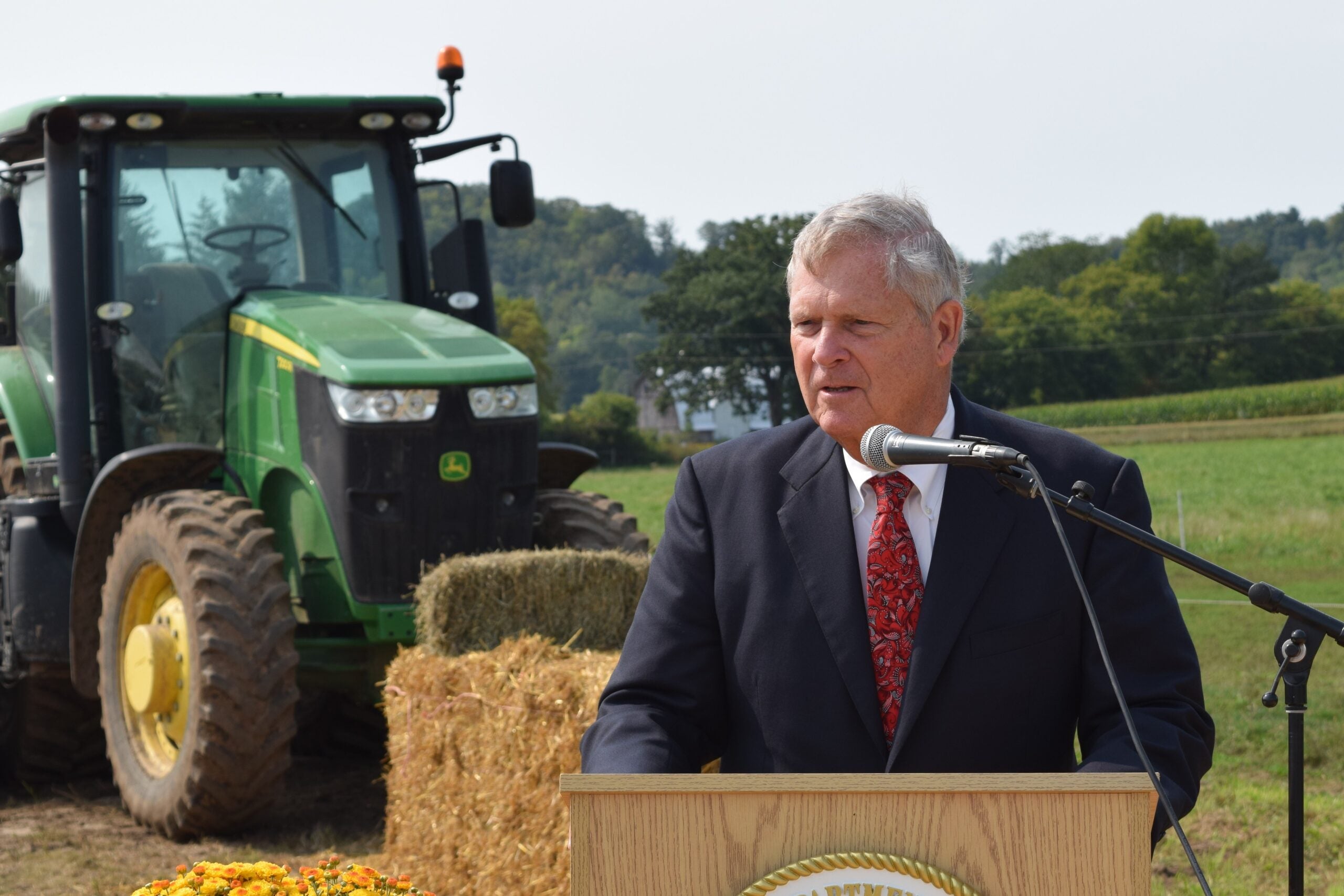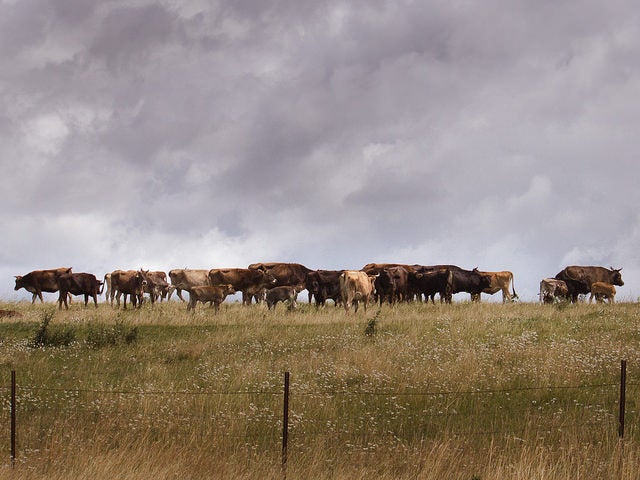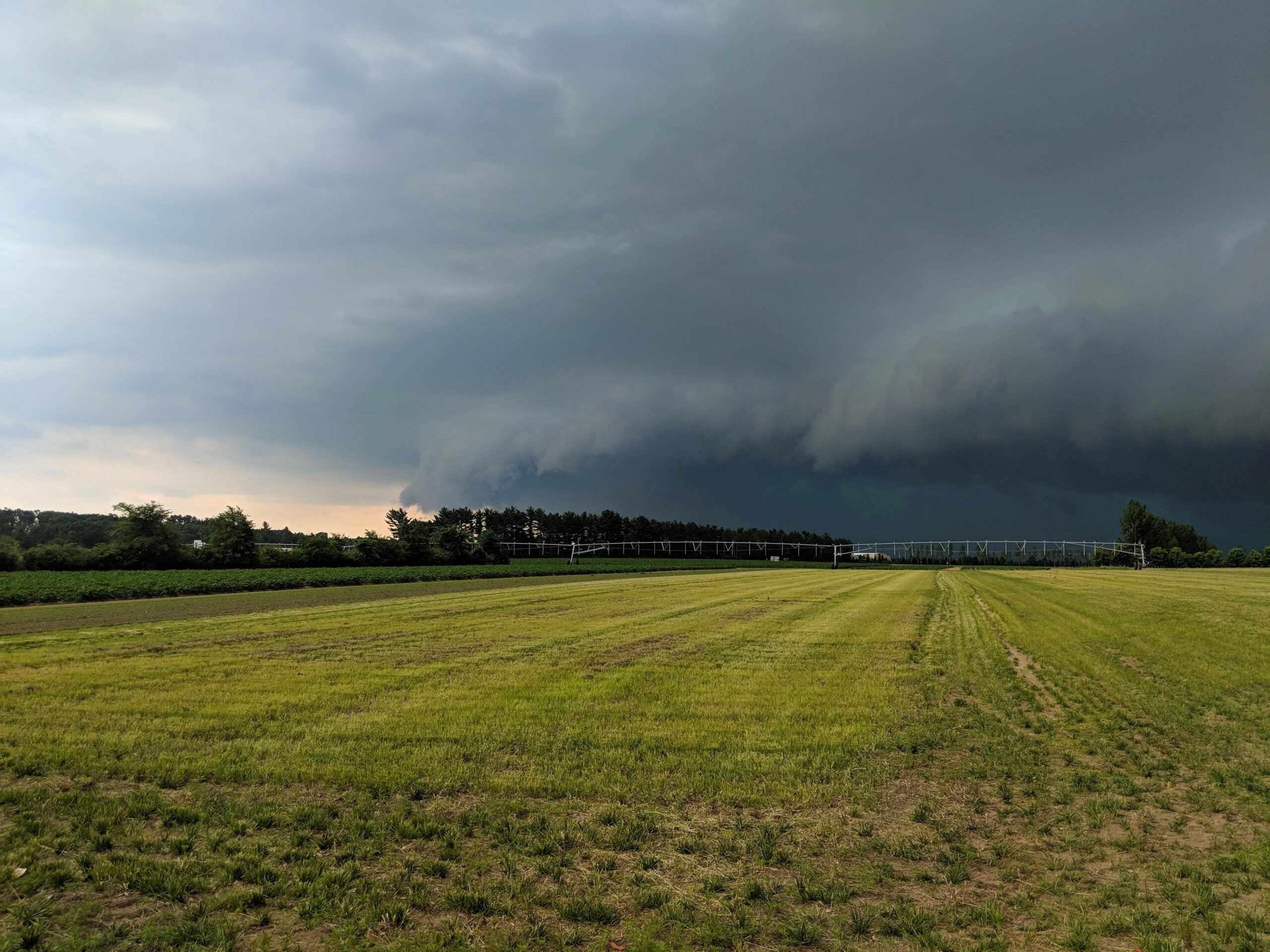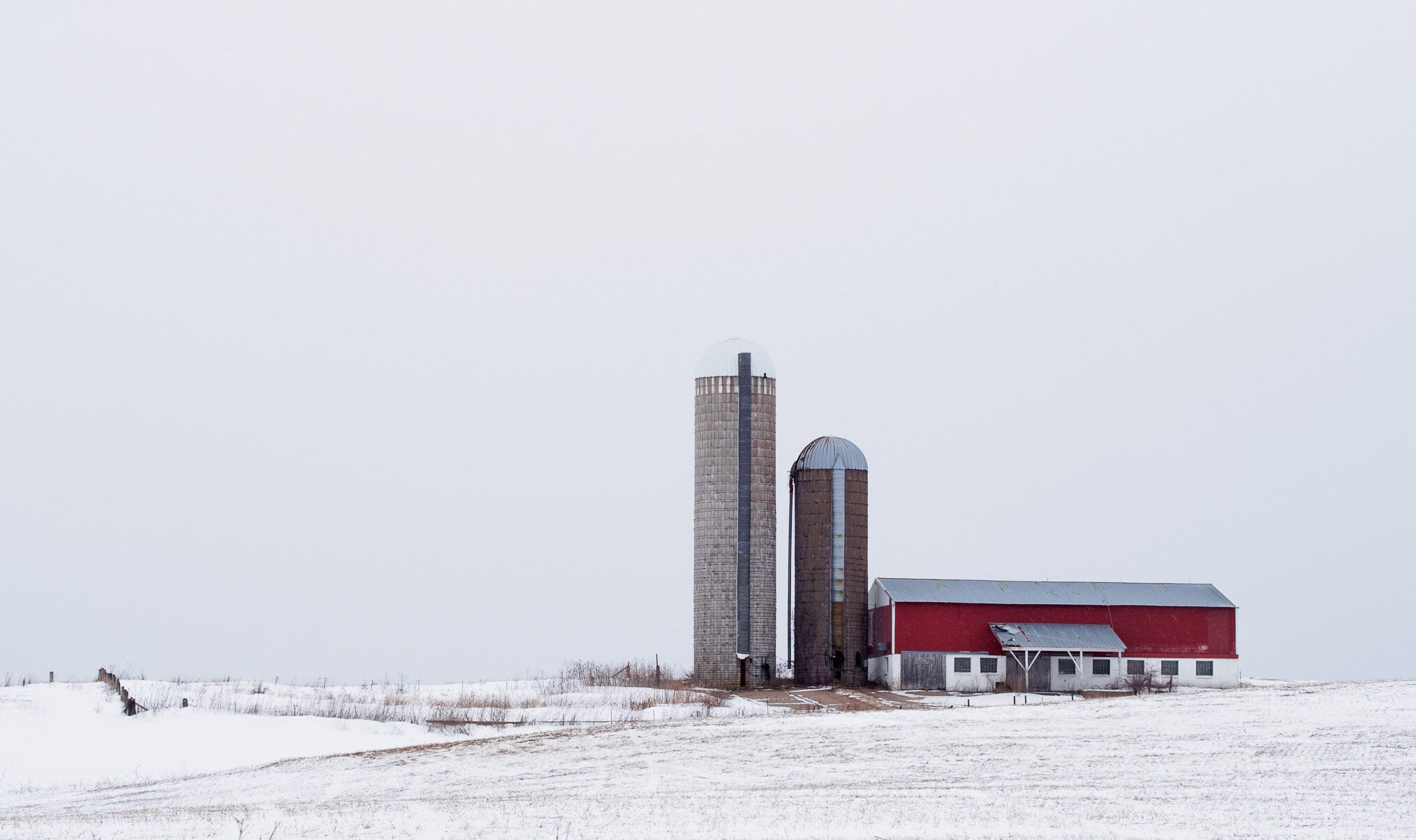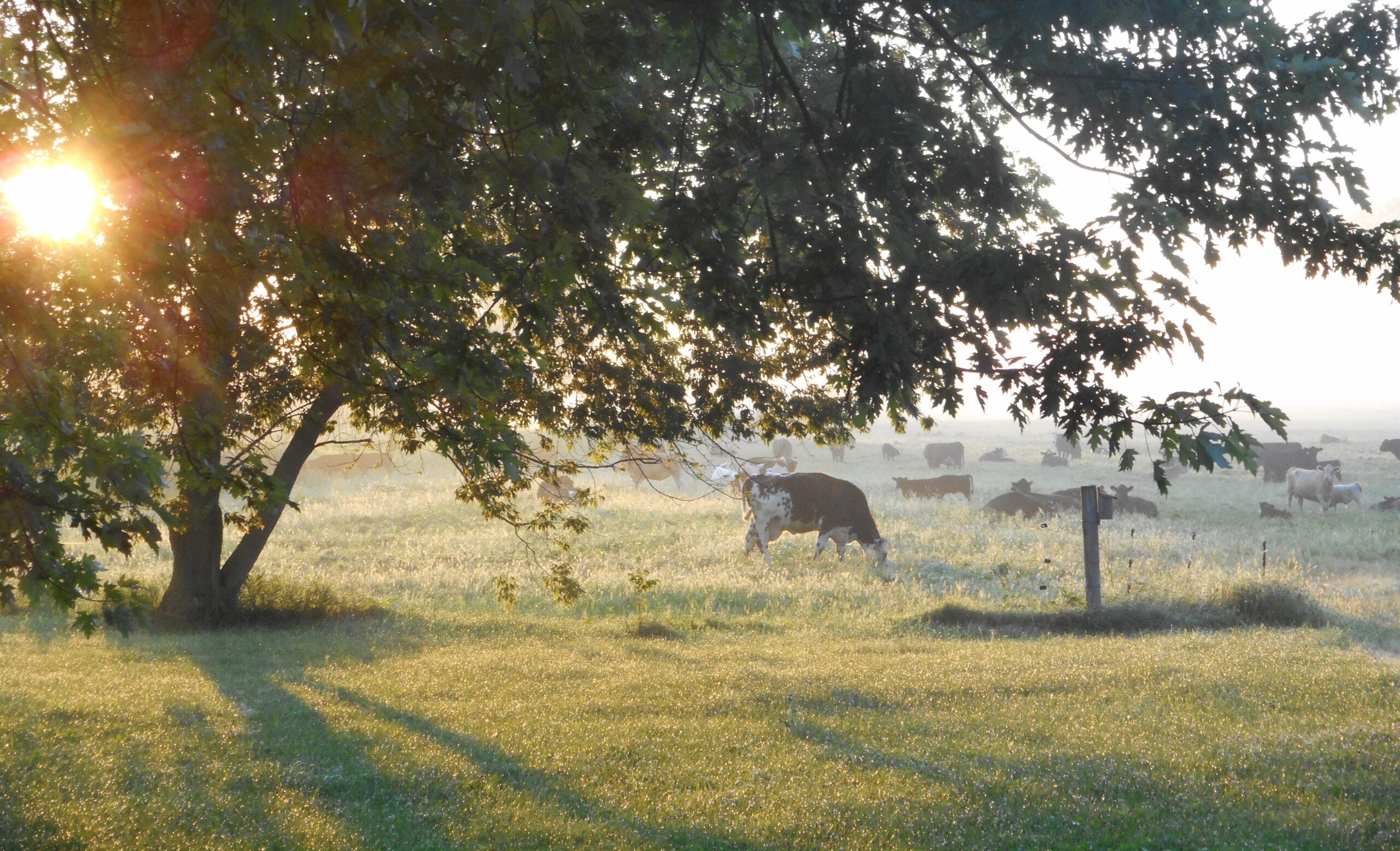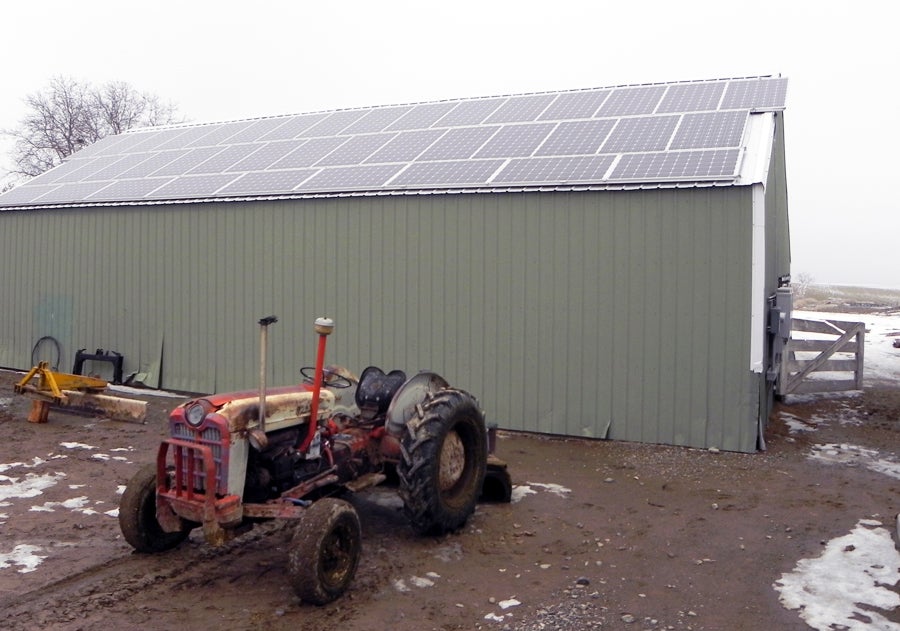Wisconsin farmers will receive some of the $2.8 billion dollars the federal government is investing in climate-smart agriculture projects.
U.S. Agriculture Secretary Tom Vilsack visited a dairy farm in Pepin County on Thursday to celebrate the funding from the Partnerships for Climate-Smart Commodities.
The U.S. Department of Agriculture first started the program in February with $1 billion in funding. But Vilsack said the agency received more than 1,000 applications requesting over $20 billion, prompting the agency to look for additional funding to support the program.
Stay informed on the latest news
Sign up for WPR’s email newsletter.
The new dollars will go toward 70 pilot projects, 16 of which will involve Wisconsin farmers and ag groups.
The La Farge-based farmer cooperative Organic Valley received $25 million of the new funding. Organic Valley will help 500 dairy and egg producers establish projects to reduce greenhouse gas emissions on their farm through direct farmer payments and cost-share opportunities.
Nicole Rakobitsch, Organic Valley’s director of sustainability, said part of the work is providing technical assistance to help producers figure out what sustainability practices best suit their farms.
The program will involve “working one-on-one with the farm to say: ‘What’s the greatest … carbon benefit for our farm, (and) what fits in our farm operation, maybe makes it more efficient,’” she said.
Rakobitsch said the projects will focus on improvements to pasture and crop lands, manure management, feed supplements, agroforestry and solar energy. She said these practices are not only good for the climate, but will help make the farms involved more resilient and profitable.
Edge Dairy Farmer Cooperative, which is headquartered in Green Bay, received $50 million for its pilot to help dairy farmers and sugar beet farmers adopt more sustainable crop practices. CEO Tim Trotter said the project expands on the work of their six farmer-led conservation programs that started as efforts to protect local watersheds through practices like reducing tilling and using cover crops.
“They want more data, they want more discussions about how they can improve,” Trotter said. “When you start with farmers, when you start getting the good news going, it’s really going to expand. I think it comes back to us being able to give them the support they need to do the work that they want to do.”
Trotter said farmers in his co-op are willing to make the investment in more sustainable practices, but they need confidence that it will be profitable for the business. He said the USDA’s investment in farmer-led climate projects provides that reassurance and will encourage those in the private sector to move toward sustainability as well.
During his visit, Vilsack told farmers and ag groups that the USDA wants to support the conservation work that’s already taking place on farms — especially as producers are faced with the growing effects of climate change like extreme weather.
“It really is about making sure that you are in a position to be able to provide the next generation of farmers the opportunity to do what you love to do,” he said. “And frankly, there’s a growing market demand for sustainably-produced food products, not just here in the United States but around the world.”
He said the funding is a “tremendous opportunity” to not only help farmers improve their bottom line in a changing climate but to help be a part of bettering the planet.
Wisconsin Public Radio, © Copyright 2025, Board of Regents of the University of Wisconsin System and Wisconsin Educational Communications Board.
